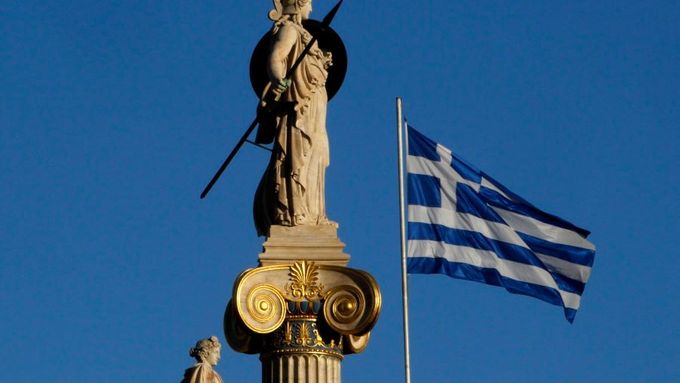Prague - While banks in most European countries are increasingly worried by the possibility of a Greek default and subsequent new round of the debt crisis, their Czech counterparts appear much more self-assured.
For example, a restructuring of Greece's debt would produce a loss of CZK 4bil (EUR 166mil) for Komerční banka, one of the Czech Republic's largest banks. In spite of this threat, the bank announced last week that it will pay its shareholders dividends worth more than CZK 10bil. Isn't such a move irresponsible?
Read more: Let them default: Slovakian PM on eurozone debt crisis
Read more: Fitch watches if Czech govt crisis will affect reforms
According to the Czech National Bank (the Czech Republic's central bank) and independent experts, it is not. They argue the Czech financial sector is so healthy that it will withstand a possible Greece's default without any problem.
So far, only Komerční banka and ČSOB have revealed their exposure to the Greek debt - CZK 6.2bil and 3.6bil, respectively (EUR 257mil and 149mil). Other Czech banks refuse to reveal this information.
Thus, Czech banks have at least CZK 10bil (EUR 415mil) in Greek bonds, which would lose as much as 70 percent of their value in case of a debt restructuring. However, their overall financial health would not be seriously threatened, as Greek bonds constitute only a tiny part of their assets.
Petra Hájková, a spokeswoman of the Czech National Bank, said that Greek bonds constitute approximately 0.3 percent of the total sum of assets owned by Czech banks.
In addition, Czech banks have repeatedly fared well in bank stress tests.
A restructuring of Greece's debt would only cause a decrease in profitability for Komerční banka, but wouldn't cause it any problem, said David Marek from Patria Finance, adding that other Czech banks are probably in the same situation. "They (Czech banks) are so conservative that even when they slip into loss, they have no problem fulfilling required parameters," said Marek.
The Czech central bank itself has contributed CZK 24bil (EUR 1,030mil) to the Greece rescue fund.
"The Czech National Bank did not lend directly to Greece, but to the International Monetary Fund, which guarantees its repayment. The IMF has a status of a preferred creditor and is one of the most trusted debtors," said Hájková. The Czech National Bank has no direct exposure to the Greek debt, so it do not expect any direct effect of a possible restructuring, she added.
However, another threat lies in a possible debt panic which would make it more expensive for the Czech Republic (and other countries) to borrow money by selling government bonds. In 2011 and 2012, the Czech Republic plans to borrow CZK 600bil. Together with the 2010 debt, it would create a fiscal burden of CZK 900bil.
Any spike in yield rates would mean that the state would have to pay CZK billions more in payments to its creditors.
Read more: Greek Flu? Czech bond yields to surge by 0.4 percent
"However, investors have been showing a relatively fair amount of confidence in the Czech Republic's finances so far," said Brožka, referring to a recent auction of Czech bonds, when the demand was several times larger than the amount offered.
